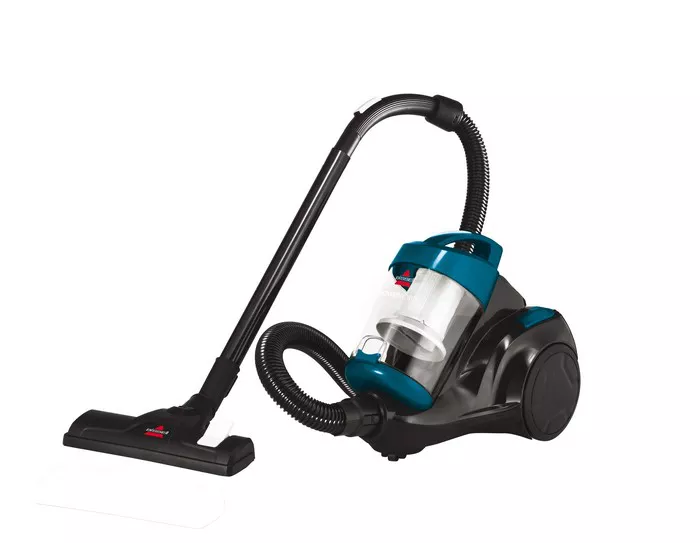Wattage, the unit used to measure electrical power consumption, plays a crucial role in understanding the energy requirements of vacuum cleaners. In simple terms, wattage indicates how much electricity a vacuum cleaner consumes during operation. Vacuum cleaners on the market typically range from 600 watts to 3000 watts, with most household models falling between 1000 to 2000 watts. Understanding wattage is essential for making informed decisions about energy usage and efficiency when selecting a vacuum cleaner.
Types of Vacuum Cleaners
The vacuum cleaner market offers a variety of options to suit different cleaning needs. Common types include upright, canister, stick, handheld, and robotic vacuums. Each type may have varying power requirements based on factors such as size, motor capacity, and additional features. Upright vacuums, for instance, often have higher wattage due to their larger motors and robust suction capabilities, while stick and handheld vacuums tend to be more compact and energy-efficient.
Energy Efficiency: Promoting Sustainable Cleaning
Energy efficiency is a critical factor to consider when purchasing a vacuum cleaner. Energy-efficient models are designed to minimize power consumption while maintaining optimal cleaning performance. By choosing an energy-efficient vacuum cleaner, consumers can not only reduce electricity bills but also contribute to environmental sustainability by conserving energy resources. Look for ENERGY STAR ratings or other energy efficiency labels when shopping for a new vacuum cleaner to ensure you make an environmentally responsible choice.
HEPA Filters and Suction Power: Balancing Performance and Energy
HEPA filters and advanced suction technologies can significantly impact the power consumption of a vacuum cleaner. While higher suction power may require more energy, the presence of HEPA filters can improve indoor air quality by capturing fine particles and allergens, reducing the need for additional cleaning cycles. When selecting a vacuum cleaner, consider the balance between suction power, filtration efficiency, and energy consumption to achieve optimal cleaning results without compromising energy efficiency.
Variable Power Settings: Tailoring Power to the Task
Many modern vacuum cleaners feature variable power settings that allow users to adjust suction power according to the type of surface being cleaned. By utilizing lower power settings on appropriate surfaces, such as hardwood floors or delicate carpets, users can effectively reduce energy consumption without sacrificing cleaning performance. Experimenting with different power settings and adapting them to specific cleaning tasks can help optimize energy efficiency and prolong the runtime of cordless models.
Corded vs. Cordless: Understanding Power Supply
Corded and cordless vacuum cleaners differ in their power supply mechanisms, which can impact energy consumption and cleaning flexibility. Corded models typically have a constant power supply, ensuring consistent performance throughout the cleaning session. In contrast, cordless vacuum cleaners rely on rechargeable batteries, which may have varying power capacities and limited runtime. While cordless models offer greater mobility and convenience, they may require more frequent recharging and could potentially consume more energy over time.
Environmental Impact: Making Sustainable Choices
The environmental impact of vacuum cleaners extends beyond energy consumption to include factors such as manufacturing, transportation, and disposal. By choosing energy-efficient models with durable construction and recyclable materials, consumers can minimize their carbon footprint and reduce waste generation. Proper disposal of old vacuum cleaners through recycling programs or electronic waste facilities ensures that valuable materials are recovered and harmful substances are safely managed, contributing to a cleaner and healthier environment for future generations.
Tips for Reducing Power Consumption: Practical Solutions
To further reduce the power consumption of vacuum cleaners, users can implement several practical tips and maintenance practices:
1. Clean or replace filters regularly to maintain optimal airflow and suction power.
2. Use the appropriate power setting for the task at hand to minimize energy usage.
3. Empty the dustbin or debris container frequently to prevent clogs and maintain airflow.
4. Keep vacuum cleaner brushes and accessories clean and free of debris to maximize cleaning efficiency.
5. Store vacuum cleaners in a cool, dry place to prolong their lifespan and ensure optimal performance.
Regulatory Standards: Guiding Consumer Choices
Regulatory standards and labels, such as ENERGY STAR, provide valuable information about the energy efficiency of vacuum cleaners. These standards are based on rigorous testing and certification processes, enabling consumers to compare different models and make informed decisions about their energy usage and environmental impact. When shopping for a new vacuum cleaner, look for ENERGY STAR certification or other reputable labels to ensure that your purchase meets high standards of energy efficiency and performance.
Conclusion: Empowering Consumers for Sustainable Cleaning
In conclusion, understanding power consumption in vacuum cleaners is essential for making informed decisions that promote energy efficiency and environmental sustainability. By considering factors such as wattage, energy efficiency ratings, suction power, and cleaning habits, consumers can choose vacuum cleaners that minimize energy consumption while delivering optimal cleaning performance. By implementing practical tips for reducing power consumption and adhering to regulatory standards, we can collectively contribute to a cleaner, healthier planet for future generations. Let’s strive to make sustainable choices in our cleaning routines and embrace the power of energy-efficient technology to create a brighter and greener future.
As technology advances and environmental awareness grows, the role of energy-efficient vacuum cleaners becomes increasingly significant in promoting sustainable living practices. Let’s harness the power of innovation and responsible consumer choices to transform our cleaning habits and preserve the planet for generations to come.

